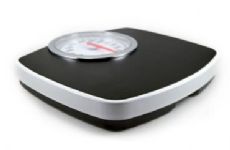|
Activity trackers are all the rage these days, as you see people wearing them on their waistbands, shoes and wrists. Popularized by Fitbit and Jawbone, it seems there is now a fitness tracker for every personality and health need. These tiny devices track a plethora of information—how many steps you’ve taken, how many calories you’ve burned, how many flights of stairs you’ve walked, how much sleep you’ve gotten and more. Basically, conscious or unconscious, your tracker knows your body better than you. Of course, more information is always better so that you know exactly how active you’ve been at any given moment of the day. Who wouldn’t want to have these stats at their fingertips? Cue me raising my hand right now. Surprised? The fact is, I gave up my activity tracker after I decided it was doing me more harm than good. Believe me, I understand that these devices can be a great source of motivation for someone who is trying to squeeze more activity into their days or knows a fun gadget is the way to get them moving. For others, though, it can become a source of stress and negativity. Consider the following scenarios:
I’ve always done better when I listen to my body, because it tells me when I’m doing too much or not enough activity. Choosing to take the device off and just focus on how I’m feeling allowed me to enjoy my workouts more and really be in tune with how much to push myself. I was happier because of it. Soon after, my nine-year old daughter asked if she could wear my activity tracker to school. Turns out, comparing and competing for the most steps was the hot new conversation topic between friends at lunch and she wanted in on the action. I initially thought it could be a nice way to get kids excited about moving, but as she started talking about comparing calories burned, I quickly decided it wasn’t a good idea. Kids shouldn't face added pressure related to activity, but should be encouraged to exercise because it’s fun and keeps them feeling strong. If your tracker inspires you to move and get excited about exercise, that’s great! But if you feel yourself falling down the rabbit hole and focusing too much on the numbers, keep in mind that these devices are all based on estimates. Your device uses an estimate of your BMR (Basal Metabolic Rate) along with the activity it detects to come up with a calories burned estimate for the day. I emphasize the word estimate because BMR calculations are based on estimates of how many calories an average person of your age and size burns, meaning the actual number varies from person to person. Furthermore, depending on the placement of your tracker and the type of exercise, the possibility exists that your device won’t pick up all of your activity. Rarely do two devices record the exact same number of steps and calories burned. This isn't to say that the data from an activity tracker is useless. In fact, it can be extremely helpful as long as you don’t get too tied to the numbers. It’s important to recognize that it is impossible for them to be 100 percent correct all the time. Over time, I’ve gotten used to people asking why I don’t wear this device or that one. My response is simple: The numbers no longer motivate me, but that doesn’t mean they won’t motivate you. At the end of the day, do what works best to keep you on track with your health and fitness goals for the long run. Do you wear an activity tracker? Why or why not? |
More From SparkPeople
|

.jpg)



.png)











.jpg)



.jpg)